My prejudice about these particular trees has been with me now for almost three years. I wrote about them in a February 2020 post, “I co-exist along with them, messy or not, ugly or not, worthy-in-my-mind or not.” I literally stare at them every morning and evening when I sit down at our table to eat. They have always been ‘not right.’ Like the Sesame Street song (modified), “Four of these things are not like the others, four of these things just don’t belong…” I don’t know who planted the Lombardy Poplars—their one ‘redeeming?’ factor is they grow quickly—up to six feet a year, so they are used for a fast screen or wind break. Neither of those reasons seem relevant here. These tall, columnar trees are native to Italy, so they do have a place in the world. The most fascinating thing about them is the word that describes how the branches grow more or less parallel to the main trunk—fastigiate. But they are messy (branches die and fall easily), ugly, and not so worthy in my mind. They are short-lived and very susceptible to pests and diseases, especially fungal diseases in more humid climates, and they have a shallow, wide-spreading root system that throws up suckers anywhere along that route, making them invasive and terrible for any kind of drainage system, including septic systems. So you won’t be surprised to hear that I was not sad at all when the trees started dying last year. As the last one put out some leaves this Spring, then slowly withered and died, I was already contemplating their removal. But Summer and most of Fall slid by without me gathering the troops to help bring them down…until the perfect solution…Thanksgiving!
I baked and cooked all day on Thanksgiving—rolls, pies, cranberry sauce, croutons, gravy, etc. and prepared for our Friday feast, and Chris lined up chainsaws, safety glasses, ear protection, and rakes out on the garage floor. I was much more excited for the after-dinner activities than a person really should be, considering it was a holiday!
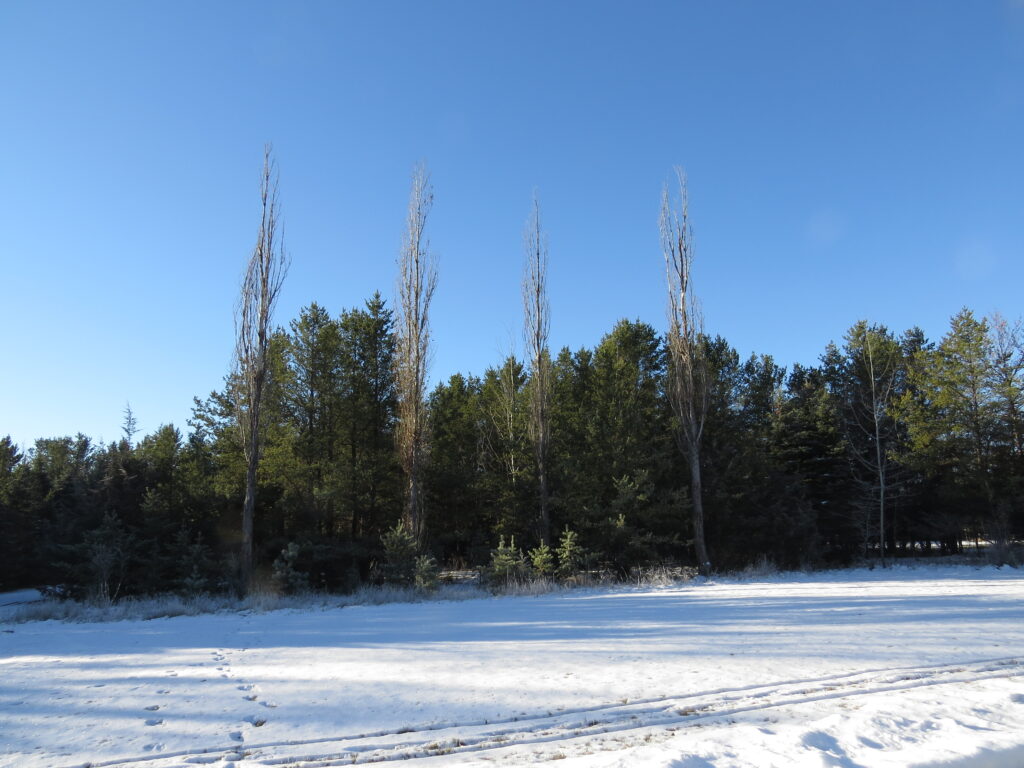
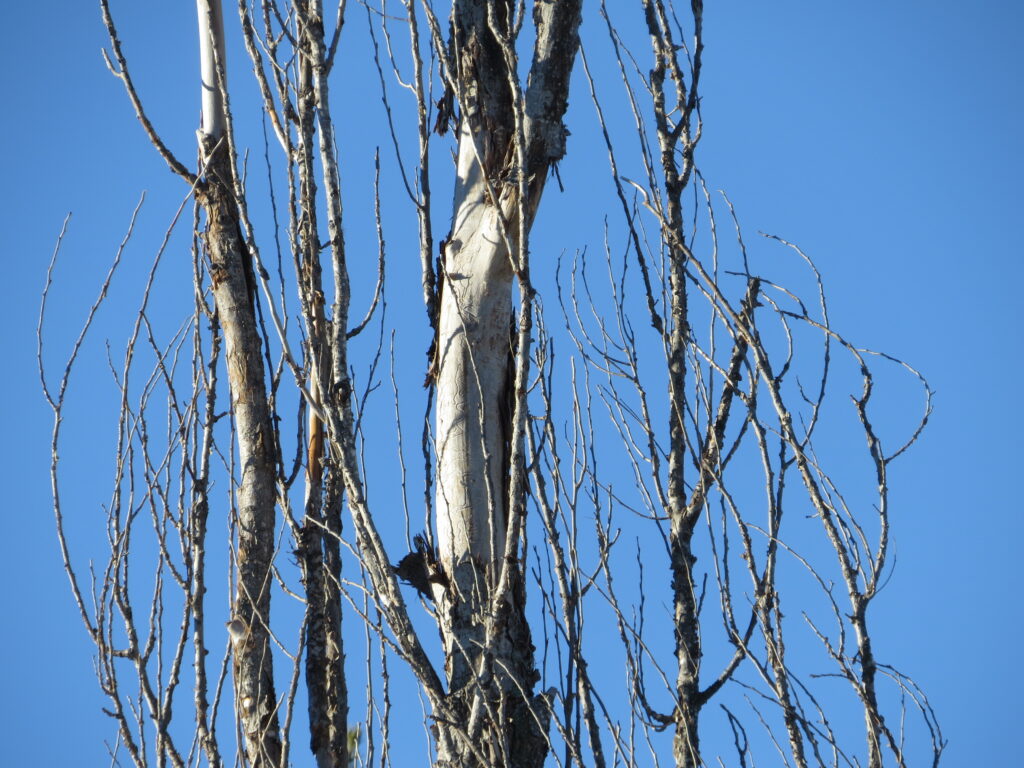
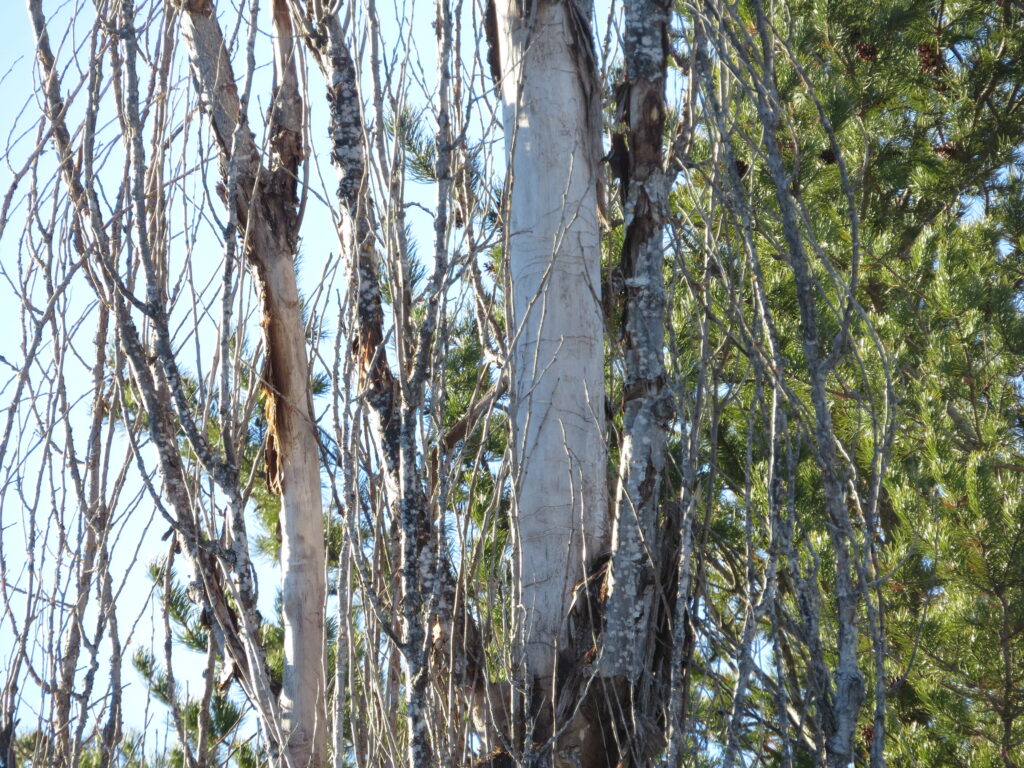
Our Thanksgiving meal was wonderful, and I dangled dessert like a carrot on a stick for ‘afterwards.’ Our son Aaron and his talented, professional chainsaw instructor of a partner Zoe, along with my brother Scott and his partner Kris were our co-workers on the felling of the Lombardys. The chainsaw wizards felled the tall trees with precision, saving all the young Pines growing in their midst. Clean-up was swift and fun with six purposeful people and gratefully, two young and strong bodies to carry logs. I was happy.
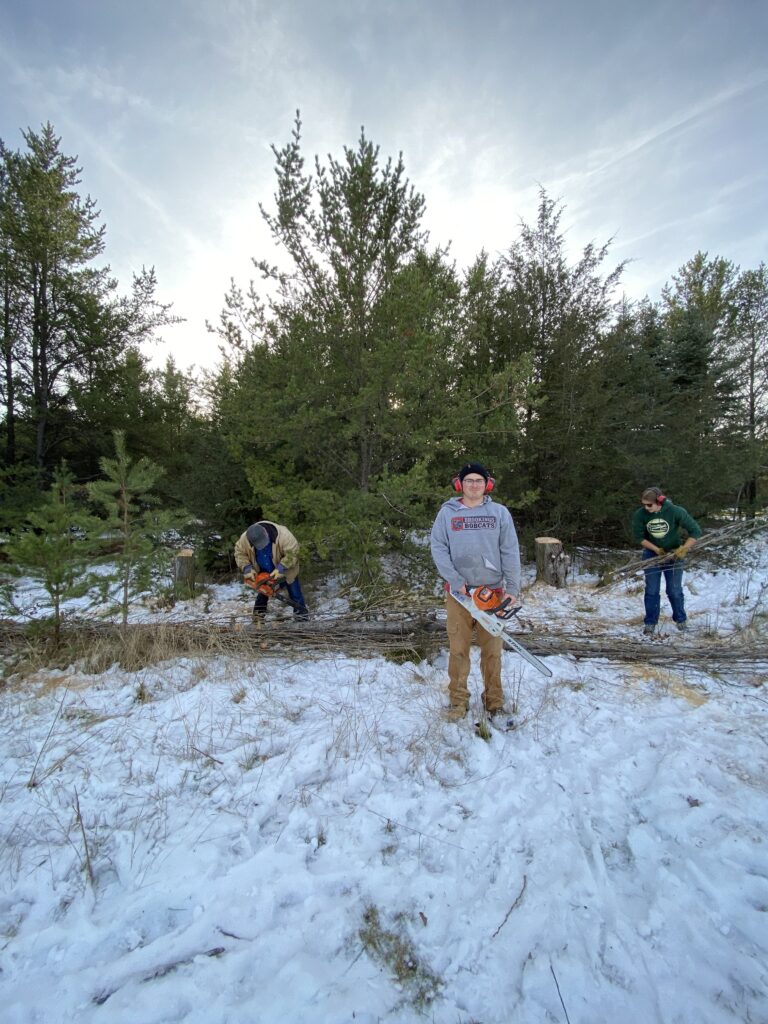
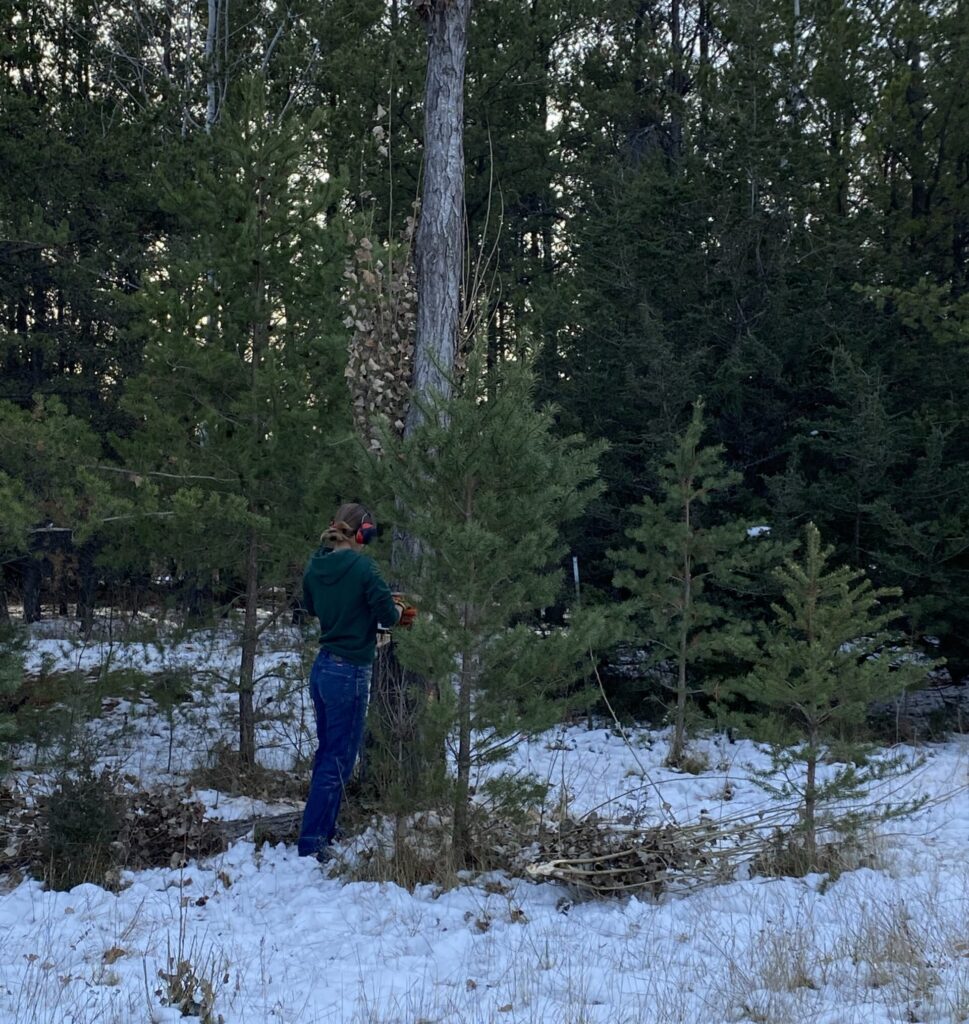
As we commented about how much better it looked with the Lombardys gone, I anticipated that the neighborhood deer would be very curious about the change to their territory. Sure enough, the evening after, the little herd showed up. First two, then three, then four….
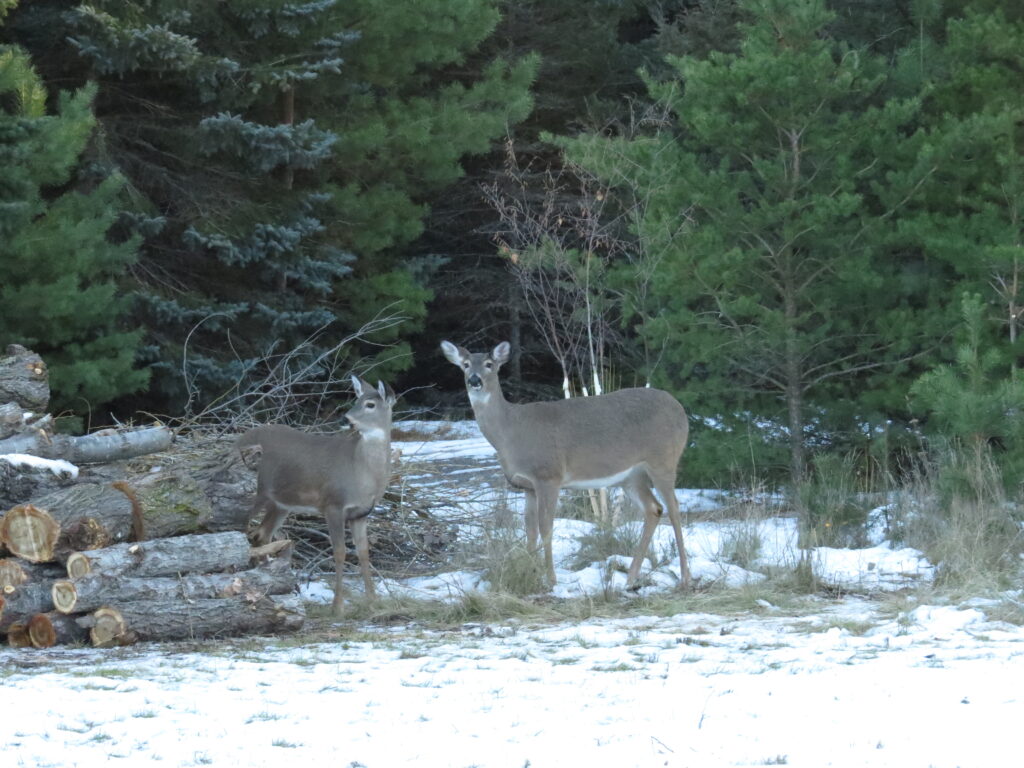
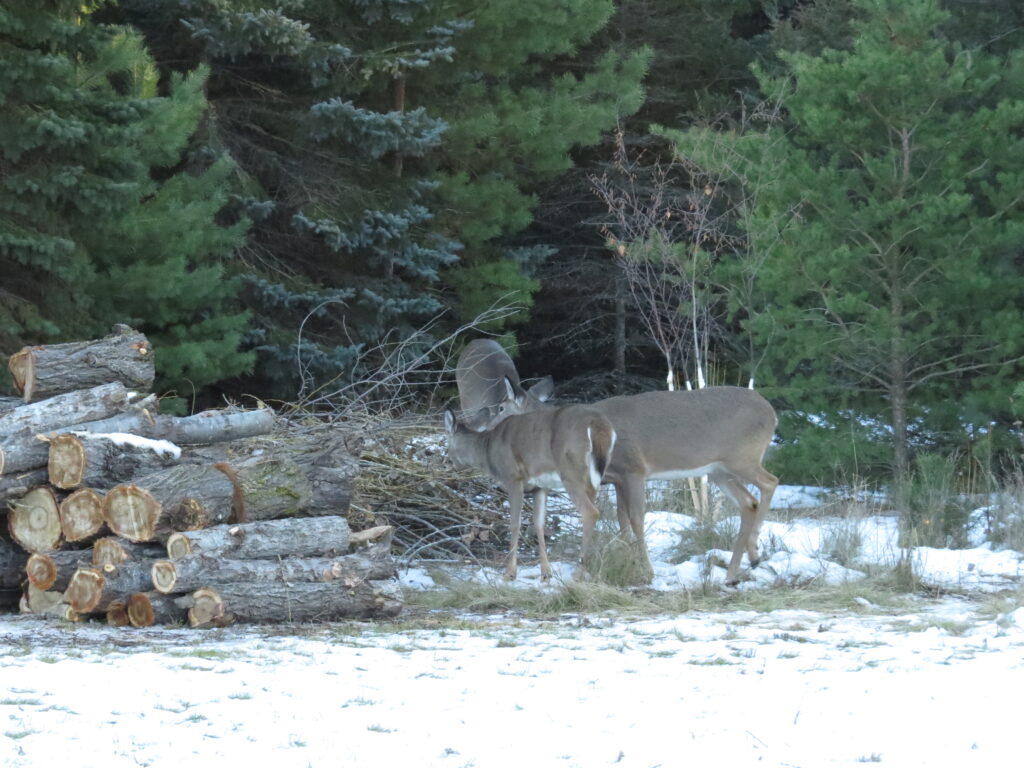
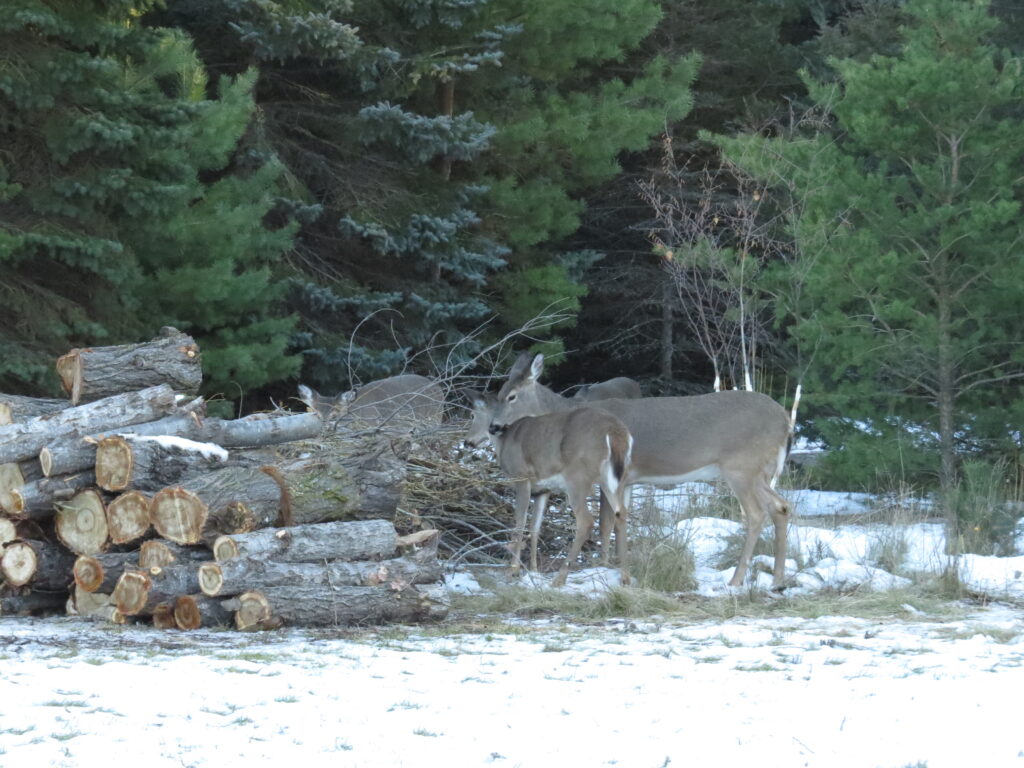
They munched on the brush in the pile, the one pile that may have had some semi-tender green branches from the last live-ish tree. Then they wandered one-by-one through the trees to the stumps and checked them out.
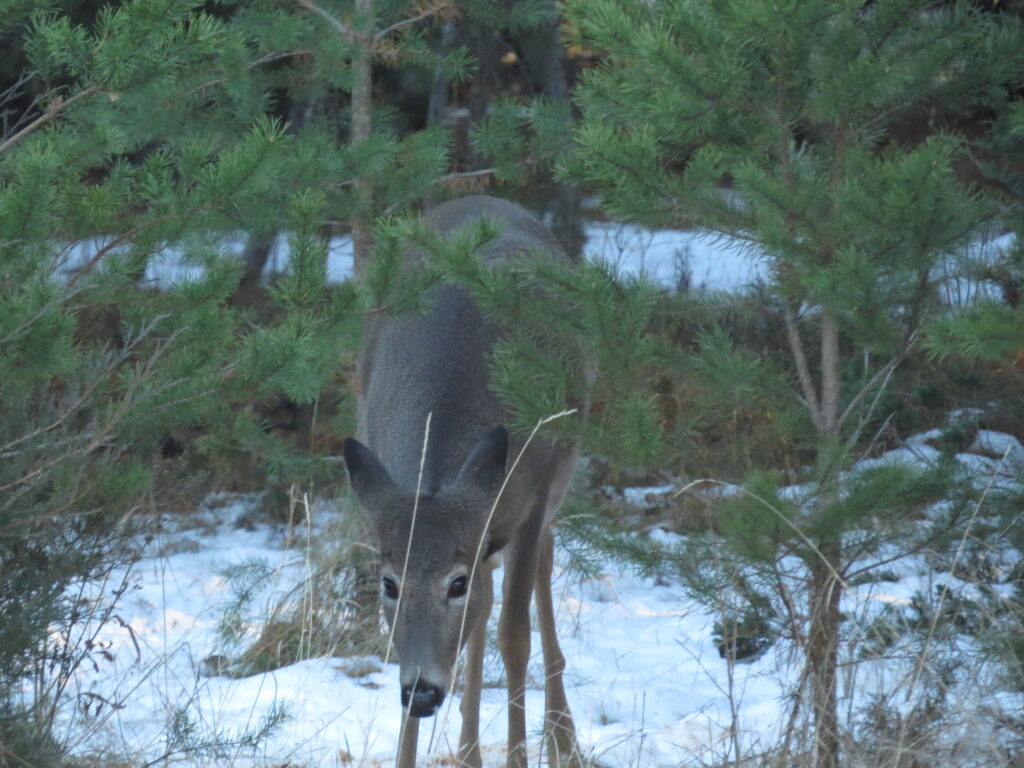
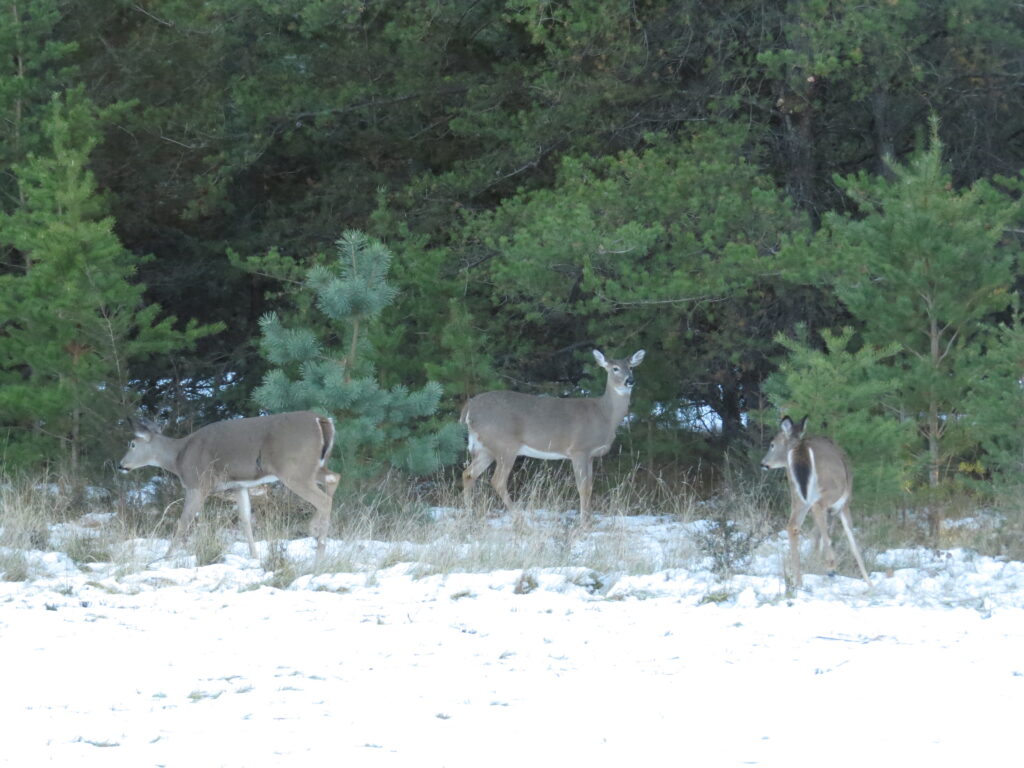
From the southeast, a young buck emerged from the trees, watching the others munching and exploring, then watching me when he saw me through the window. He wasn’t concerned. He took his turn through the trees, noticing the changes to their wandering grounds.

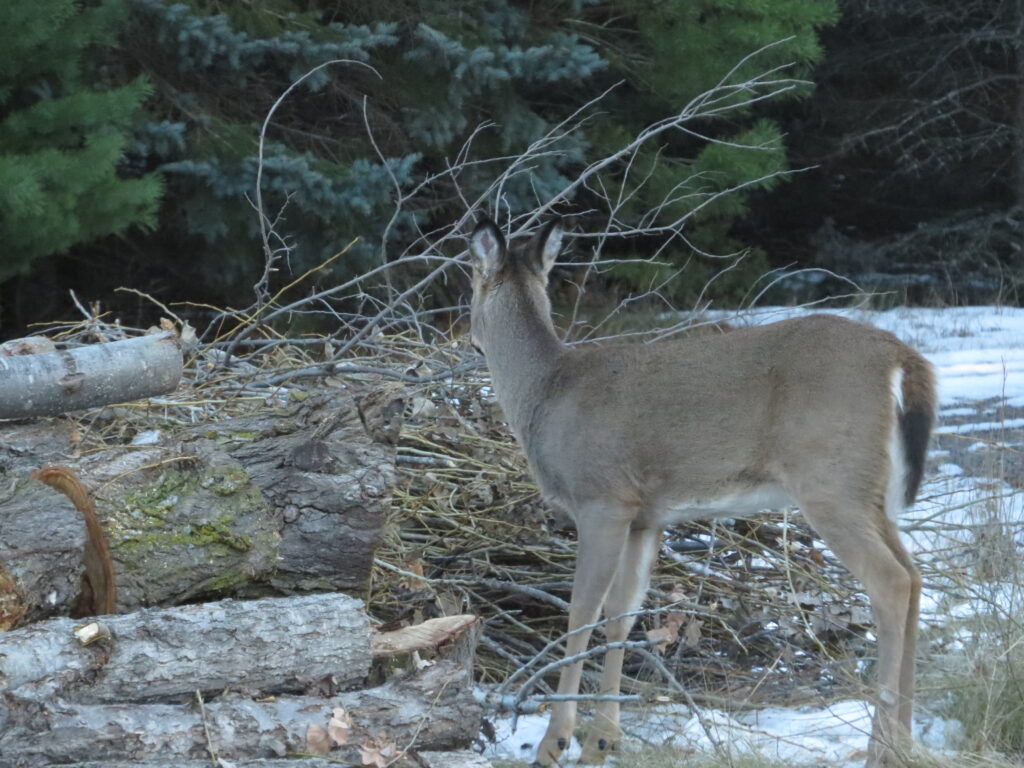

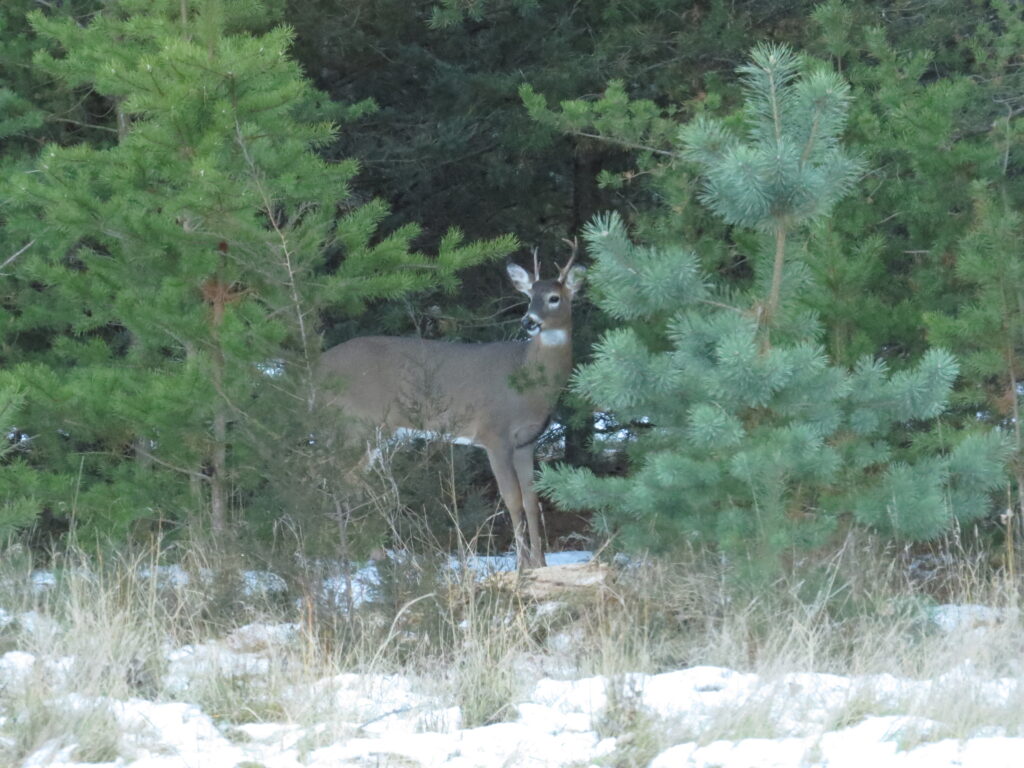
So now my view is the ‘way it should be.’ The native Pines are growing and will soon fill in the gaps left by the big Lombardy Poplars. They will not be missed.
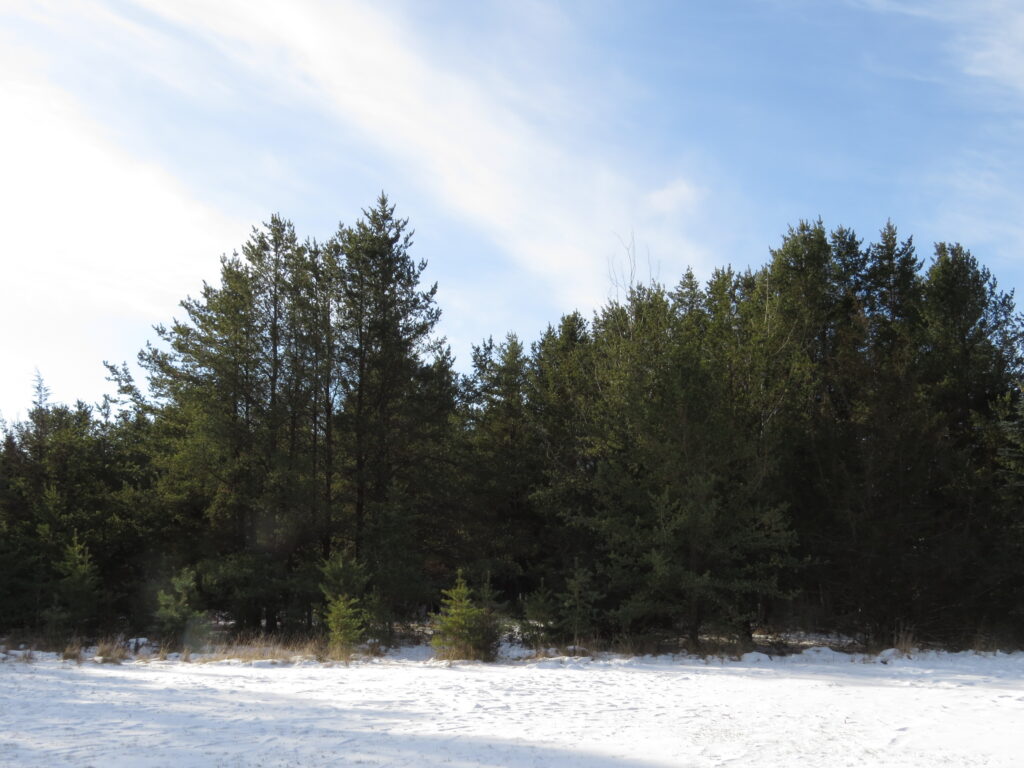
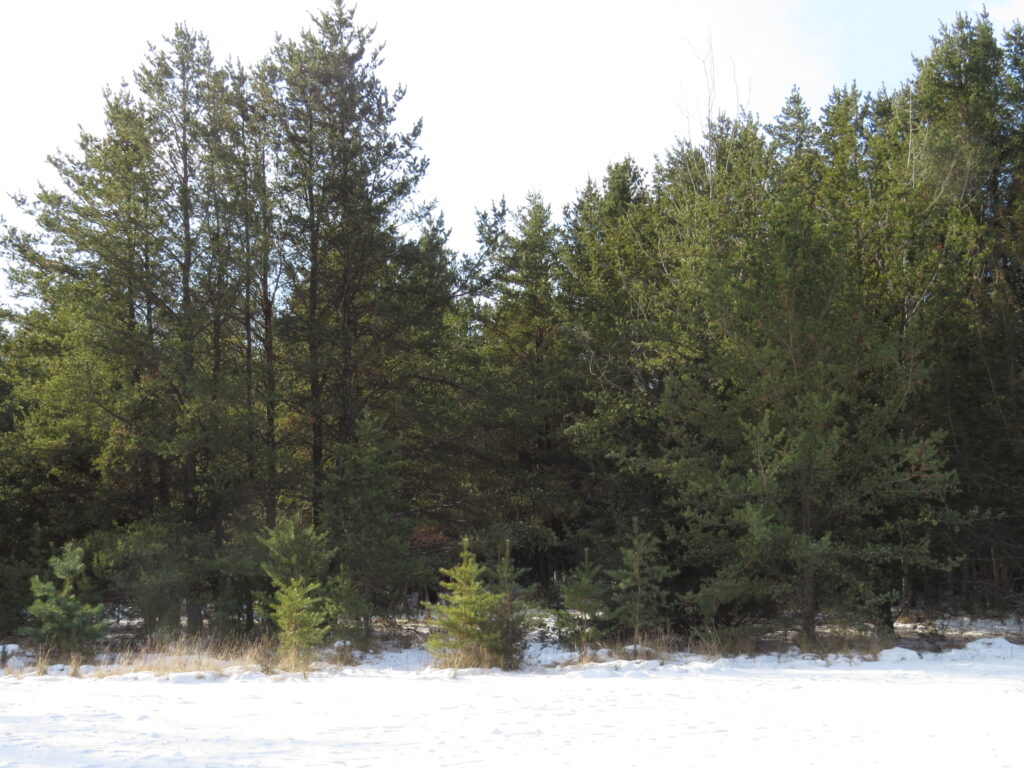
I am not the only person who is so prejudiced against Lombardy Poplars. Michael Dirr, the author of the tree bible ‘Manual of Woody Landscape Plants’ wryly writes, “if anyone plants poplars they deserve the disasters which automatically ensue.” So maybe prejudice is not the correct word since there are plenty of valid reasons for the rejection of this tree, especially in Minnesota’s northland. We have our own native poplars—Quaking Aspens, Big-toothed Aspens, and Eastern Cottonwoods. They grow and flourish among the evergreens.
When something seems ‘not right,’ we owe it to ourselves to investigate that feeling. Do we carry a bias or a prejudice that is invalid or erroneous? Do we feel that way because others around us feel that way or impel us by their words? Do we really know what we’re talking about? Experience, facts, and reason are valid ways we navigate our inquiries—whether that’s all the downfalls of a species of tree, the actual workings of an election system, or the character of our neighbors. Anyway around it, the Lombardy Poplars lost.